Landlord Letter of Reference Template for Tenants
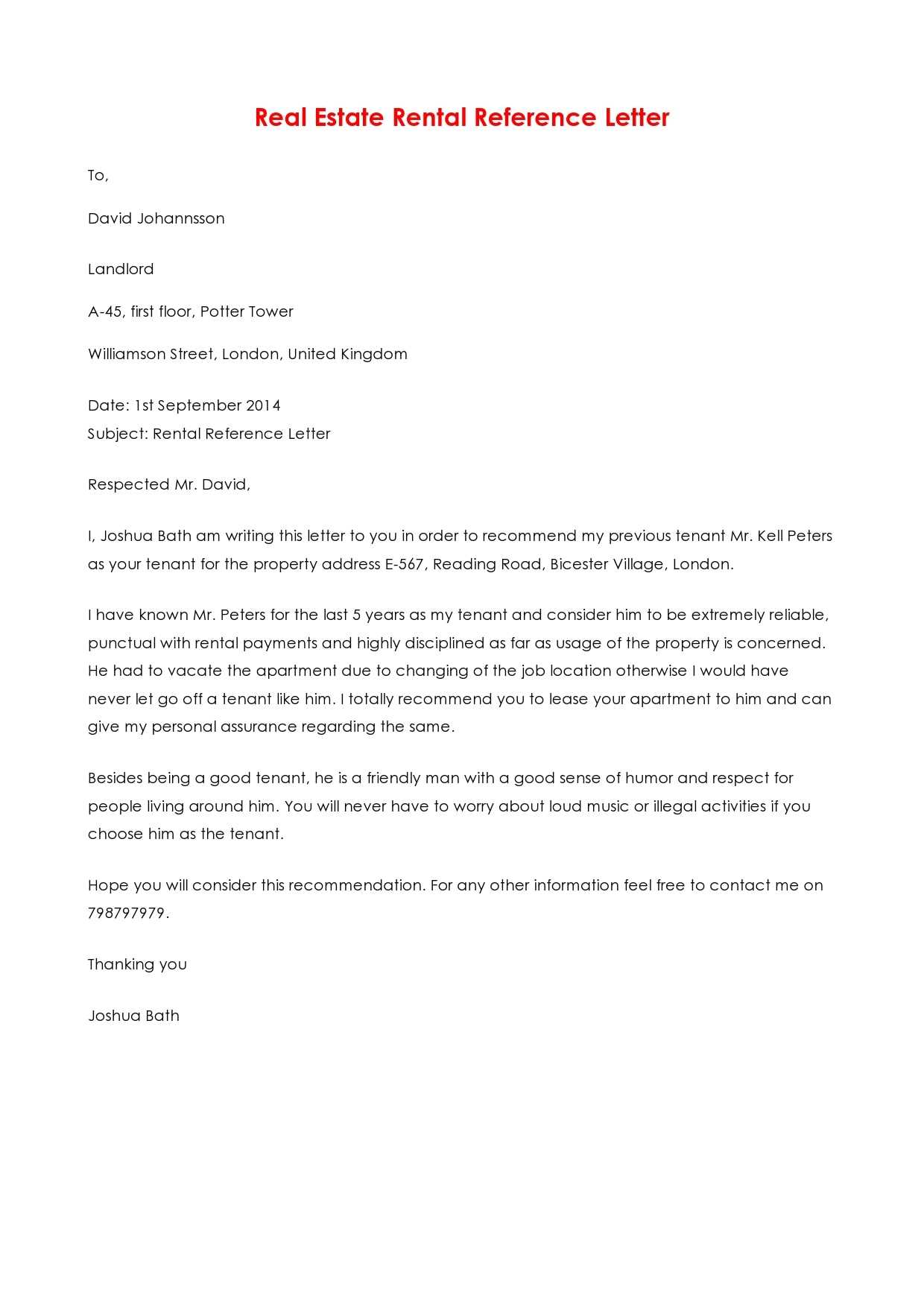
When a tenant seeks a new rental property, a formal recommendation from their previous housing provider can be a key factor in securing their next home. This endorsement plays a vital role in demonstrating the tenant’s reliability, responsibility, and positive behavior during their time in a previous residence. Below is a guide on how to effectively write such an endorsement for a former renter.
Key Aspects of a Strong Recommendation
In order for a character endorsement to have the desired effect, it should cover several key areas to ensure the recipient gains a comprehensive understanding of the tenant’s qualities.
- Tenant’s history: Start by stating the duration of the tenant’s stay and the relationship you had with them.
- Timeliness and responsibility: Highlight the tenant’s commitment to paying rent on time and maintaining the property.
- Behavior and character: Describe the tenant’s personal qualities, including respect for others and the ability to follow house rules.
Structure of the Document
The document should be concise yet thorough, following a simple structure for clarity. This structure includes an introduction, a body with specific examples of positive actions, and a conclusion with a strong endorsement.
Tips for Writing an Effective Statement
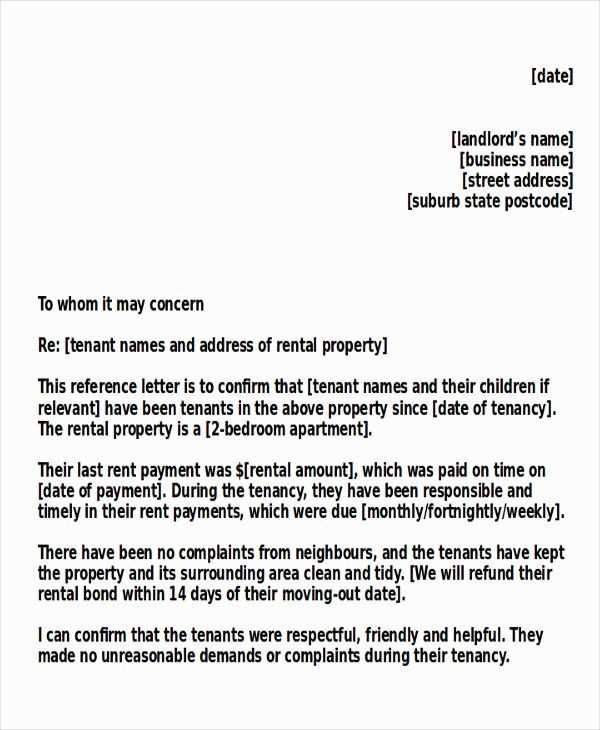
- Be clear and concise in your language to avoid any ambiguity.
- Avoid including irrelevant details that do not contribute to the tenant’s credibility.
- Ensure the tone is professional and genuine to reinforce trustworthiness.
Final Considerations
Once the endorsement is complete, review it for clarity and accuracy. It’s important to ensure it accurately represents the tenant’s time in your residence. A well-written and sincere recommendation can greatly assist a tenant in securing their next home.
What is a Tenant Endorsement Document
A formal recommendation for a former tenant serves as a testament to their reliability and behavior during their time in the rental property. This document is crucial when a tenant seeks new housing, as it provides potential landlords with insight into their previous rental experiences. A well-crafted statement can be the deciding factor in securing a new place to live.
Importance of Such Documents for Renters
For tenants, having a strong endorsement from a previous housing provider can significantly increase their chances of securing a new rental. It assures landlords that the individual is responsible, trustworthy, and capable of maintaining a property to a high standard. The document also provides a sense of the tenant’s character and their ability to follow rules and pay rent on time.
Key Elements to Include
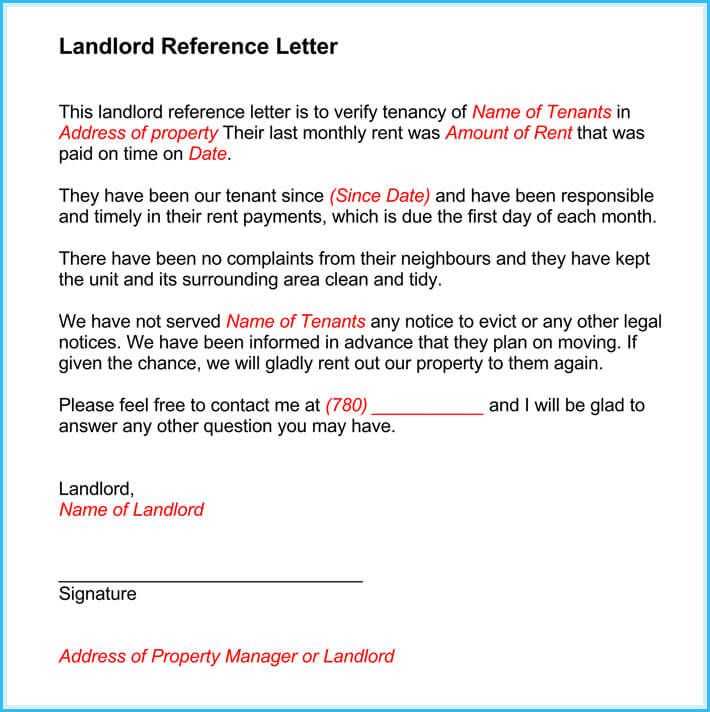
When writing a recommendation for a past tenant, several important components should be included:
- Duration of stay: Specify how long the tenant lived at the property and the nature of your relationship.
- Responsibility: Mention the tenant’s punctuality in rent payments and how they cared for the residence.
- Personal qualities: Highlight traits like respect for neighbors and adherence to house rules.
How to Write a Professional Endorsement
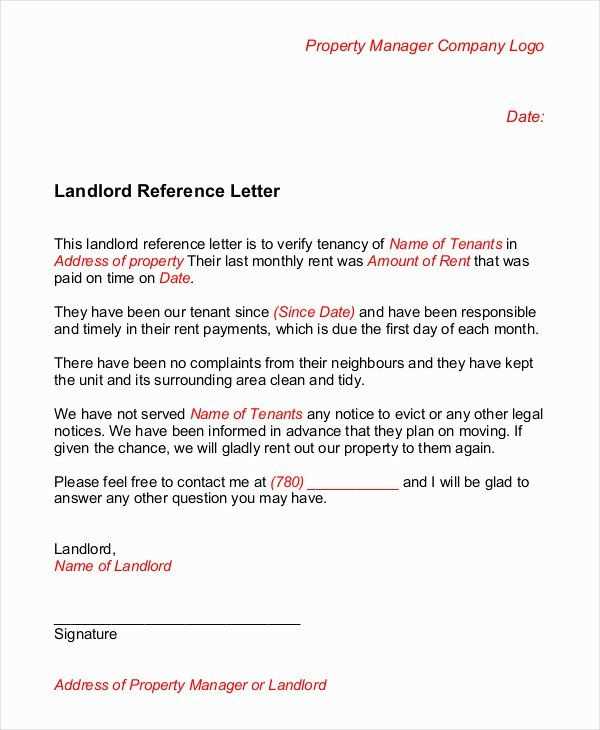
To craft an effective and professional recommendation, keep the tone positive and factual. Use specific examples of the tenant’s good behavior, such as their respect for the property or any commendable actions. Avoid any vague statements or irrelevant details that could weaken the message.
Customizing Your Document for Each Tenant
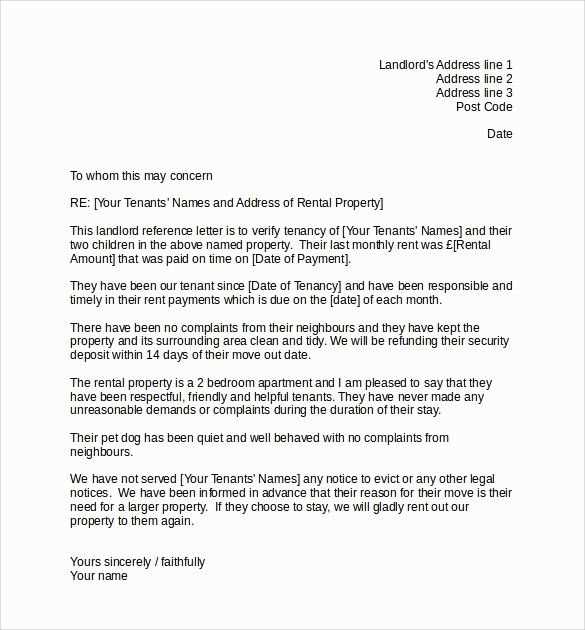
Each endorsement should be tailored to the specific individual. Focus on the aspects that make that tenant stand out, whether it’s their ability to maintain the property or their excellent communication skills. A personalized endorsement will always have more impact than a generic one.
Common Mistakes to Avoid
When writing a recommendation, be cautious of the following errors:
- Vague language: Avoid generalizations such as “they were a good tenant.” Be specific.
- Over-complimenting: While it’s important to be positive, exaggerating or overstating qualities can undermine credibility.
- Inaccurate details: Ensure all facts mentioned are accurate, as false claims can harm both the tenant and the writer’s reputation.